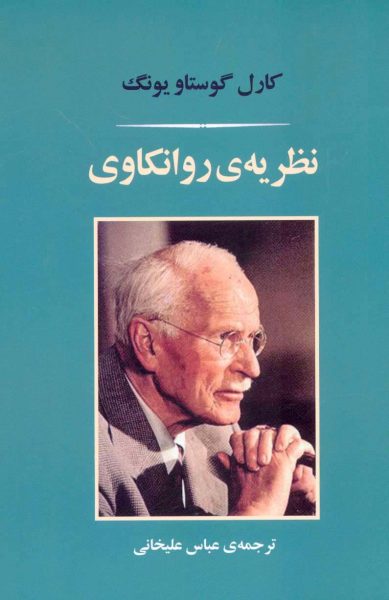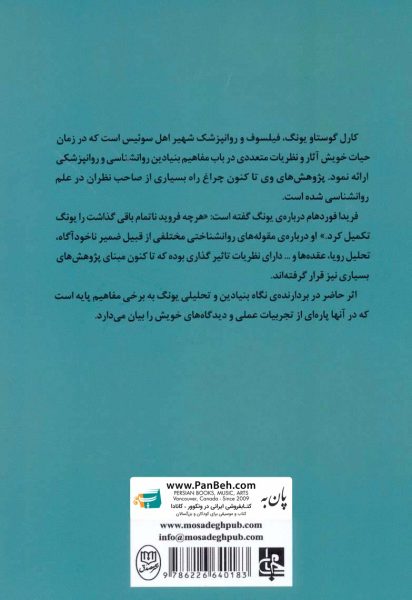This work is in the public domain in the United States of America, and possibly other nations. Within the United States, you may freely copy and distribute this work, as no entity (individual or corporate) has a copyright on the body of the work.
Scholars believe, and we concur, that this work is important enough to be preserved, reproduced, and made generally available to the public. To ensure a quality reading experience, this work has been proofread and republished using a format that seamlessly blends the original graphical elements with text in an easy-to-read typeface.
We appreciate your support of the preservation process, and thank you for being an important part of keeping this knowledge alive and relevant.
About Author:
Carl Gustav Jung (/jʊŋ/ YUUNG; born Karl Gustav Jung, German: [kaʁl ˈjʊŋ]; 26 July 1875 – 6 June 1961), was a Swiss psychiatrist and psychoanalyst who founded analytical psychology. Jung’s work has been influential in the fields of psychiatry, anthropology, archaeology, literature, philosophy, psychology and religious studies. Jung worked as a research scientist at the famous Burghölzli hospital, under Eugen Bleuler. During this time, he came to the attention of Sigmund Freud, the founder of psychoanalysis. The two men conducted a lengthy correspondence and collaborated, for a while, on a joint vision of human psychology.
Freud saw the younger Jung as the heir he had been seeking to take forward his “new science” of psychoanalysis and to this end secured his appointment as President of his newly founded International Psychoanalytical Association. Jung’s research and personal vision, however, made it impossible for him to follow his older colleague’s doctrine and a schism became inevitable. This division was personally painful for Jung and resulted in the establishment of Jung’s analytical psychology as a comprehensive system separate from psychoanalysis.
Among the central concepts of analytical psychology is individuation—the lifelong psychological process of differentiation of the self out of each individual’s conscious and unconscious elements. Jung considered it to be the main task of human development. He created some of the best known psychological concepts, including synchronicity, archetypal phenomena, the collective unconscious, the psychological complex and extraversion and introversion.
Jung was also an artist, craftsman, builder and a prolific writer. Many of his works were not published until after his death and some are still awaiting publication.
اگرچه نظریه های ارائه شده در این کتاب ، ویرایش 1915 از سخنرانی های یونگ در دانشگاه فوردهام ، اکنون کاملا منسوخ شده است ، این کتاب هنوز یک نگاه جذاب از ذهن یونگ در برهه حساس زندگی او است. فقط سه سال پیش ، او خود به خود حمله کرد و Wandlungen und Symbol der Libido خود را که در انگلیسی به عنوان روانشناسی ناخودآگاه شناخته می شود ، منتشر کرد. آن کتاب نشان دهنده جدایی او از مدرسه وین به رهبری فروید بود و همچنین نشان دهنده پایان رابطه عمیقا عاطفی یونگ و فروید بود. فکر یونگ اکنون در مسیر خودش حرکت می کند. او دیگر فرویدی نیست ، اما هنوز یونگی نیست. توسعه نظریه روانشناسی خود راه طولانی در پیش دارد. بنابراین ، در این کتاب ، ما او را در حال گذار می بینیم ، فکرش کار در حال پیشرفت است ، نظریه او پروژه ای که هنوز در دست ساخت است. ایده هایی که ما او را به خاطر داریم در حال ریشه دار شدن است. تماشای این کار برای دانشجویان روانشناسی و تاریخچه آن تجربه ای جذاب است.
درباره نویسنده:
کارل گوستاو یونگ، زاده ی 26 جولای 1875 و درگذشته ی 6 جون 1961، روانپزشک، فیلسوف و نویسنده ای سوئیسی بود که به خاطر فعالیت هایش در روانشناسی و ارائه ی نظریاتش تحت عنوان «روان شناسی تحلیلی» شناخته می شود. یونگ در کسویل سوییس متولد شد. او در جوانی مجذوب علم و فلسفه شد و دانشگاه بازل برای تحصیل در رشته ی پزشکی به او بورس داد. یونگ پس از مدتی به عضویت انجمن مناظرات دانشگاه درآمد. او بیش از دو سال در جلسات احضار روح شرکت می کرد چرا که این جلسات را موضوعی برای تحقیقات خود در نظر می گرفت. یونگ دوران کارآموزی را در روان پزشکی از دسامبر 1900 به عنوان دستیار بیمارستان بورگهولتزلی از درمانگاه های وابسته به دانشگاه زوریخ آغاز کرد. او در مدت نه سال در بورگهولتزلی در برنامه ی پیشگام تجربی روانشناسی تحت سرپرستی اوژن بلویلر رئیس بیمارستان فعالیت کرد. یونگ را در کنار زیگموند فروید از پایه گذاران دانش نوین روانکاوی قلمداد و از او به عنوان پدر روانشناسی نوین یاد می کنند.




















